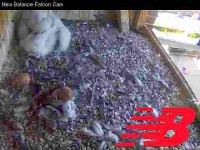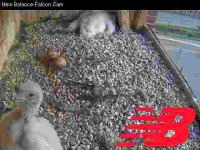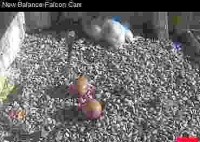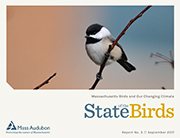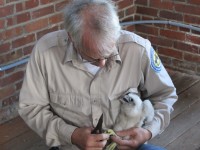
As part of an on-going project to monitor the Massachusetts peregrine falcon population, new peregrine chicks are banded each year at their nest-sites. Biologists rely on the banding program to study the success of restoration programs and to better understand the birds’ habitat preferences and survival rates. The bands also help biologists determine how far young birds will travel to establish their own territories and track causes of death, according to an item in MassWildlife’s May newsletter.
After the pesticide DDT ravaged the country’s falcon population during the first half of the 20th century, restoration efforts have brought the species back from the brink of extinction. Peregrines were taken off the federal Endangered Species list in 1999, but the bird still listed as endangered in Massachusetts. In the MassWildlife newsletter, French said there were 25 nesting falcon pairs in the state in 2011.
Photos of banding day posted online: http://www.pbase.com/birdshots/image/143902235 Click “next” in upper right to advance frames!
Articles posted online:
Chick banding in Manchester NH: http://www.nhaudubon.org/peregrine-falcon-chicks-banded-at-brady-sullivan-tower
Chick banding in Springfield, MA: MassWildlife officials band brood of Peregrine Falcon chicks at
You Tube video of Lowell banding: http://www.youtube.com/watch?v=mNa4uOeM-e0&list=PLB19630DCD62E4B76&index=3&feature=plpp_video
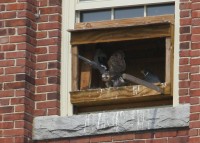 Peregrine male chick is ready to go and preparing to fledge later this week! He has been flapping regularly each day and itching to fledge. The female is taking her time and is clearly on a different schedule!
Peregrine male chick is ready to go and preparing to fledge later this week! He has been flapping regularly each day and itching to fledge. The female is taking her time and is clearly on a different schedule!